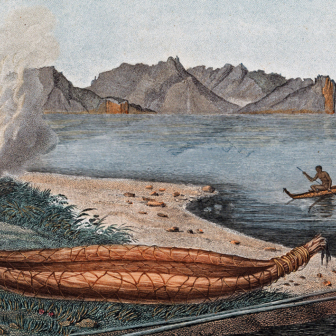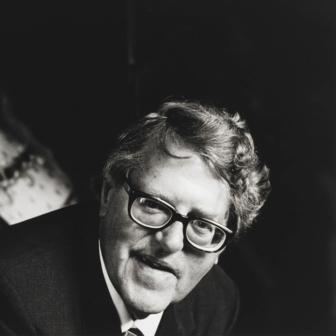A YOUNGER colleague was thrilled last year at being one of the few successful applicants for a four-year research fellowship from the Australian Research Council, or ARC. Already an experienced anthropologist, she had spent months carefully crafting her project with the help of colleagues and university resources. She planned to continue her intensive field research in an Aboriginal community whose language she speaks. For eighteen years she has been building close and trusting relationships with people who appreciate the chance to explore and articulate their own values, perceptions and ambitions, in a social setting that the nation considers so problematic.
At the ARC, her proposal had gone through a rigorous ranking process involving external peer reviewers and an expert discipline-based panel. But then, suddenly and surprisingly, her application for ethics approval met with queries about matters of method and scientific merit from her university’s ethics committee that cut across the aims and methods that had already been examined and approved. She has been forbidden to begin the research until the committee is satisfied, and is now preparing her fourth attempt to gain approval.
This is one of several cases I’m aware of that are fuelling increasing concerns within the academy about the role of university human research ethics committees, or HRECs, in judging social science research. Another, even more distressing case involved a PhD candidate who received a scholarship through a highly competitive process, also for an original and valuable research project in an Aboriginal community, but has abandoned her university in despair after being faced with unanswerable questions that had nothing to do with ethics or the subject matter of the project.
In each case, all the sweat and tears of gaining the funding were brought to nought by committees seemingly dedicated to obstructing rather than facilitating. The qualitative research agenda of a peak research body, the ARC, is being blocked or seriously delayed by these committees. There is a puzzle here about the relationship between the major institutional players – the ARC, the HRECs and the universities themselves, with their need for research funds and research output. But my concern is with the common frustration of social researchers when a HREC exceeds its brief and uses spurious ethical grounds to demand damaging changes to a well-developed project.
The job of these committees is to make sure that any research with human subjects meets the guidelines set out in the National Statement on Ethical Conduct in Human Research. The kind of research that my students and I do – ethnographic research involving Aboriginal Australians – is subjected to the most intense scrutiny from would-be ethicists. At the heart of their concerns is an imbalance of power, and their aim is to protect powerless subjects from researchers’ exploitation or misrepresentation. In working by analogy with the medical model of research (where these ethics clearances originated), however, these committees misapprehend social science methods and aims in three ways.
First, qualitative social research depends entirely on subjects’ voluntary cooperation – they choose whether and how to participate and hence are by no means powerless in this context.
Second, most subjects are eager to be recorded, quoted and depicted, and desire to take an active part in the research, often to correct public misrepresentations. For people who do not themselves write, social research is an opportunity to be known by the nation of which they are a part.
Third, as Marcia Langton said in 1993, images of Aboriginal life should not be confined to flattering and favourable views but need to be rich and complex, reflecting a range of competing perspectives. And the same is surely true of any social domain.
In their attempt to protect vulnerable research subjects, HRECs obstruct opportunities for marginalised people to be heard. Experienced researchers are understandably offended by demands for accountability that imply they are dishonest, manipulative or exploitative of subjects who want to participate in their research.
So what are ethics committees worried about? Harm, or rather disturbance, to individuals or to the community appears to be a central concern, and so researchers must promise to provide extensive information and gain permission before the research begins. What started out as good practice has grown like a noxious weed, until the HRECs appear sometimes to be demanding the ultimate safeguard – that all community leaders agree to the findings before the research begins. This absurdity would make any research redundant.
There are ethical complexities involved in social research, as an extensive anthropology literature testifies. Human relationships necessarily involve moral matters. But these are not amenable to abstract rule-making and cannot be adjudicated beforehand. HRECs’ suspicions about unethical practices are counterproductive because of their serious misunderstanding of ethnographic research. I am not a moral philosopher – nor are HREC members – but grappling with moral questions has been an everyday experience during my many years of ethnographic work. Immersion in social relationships forms the basis of sound ethnographic research and is always accompanied by anxieties and dilemmas. Relationships formed during fieldwork are close and complex; the work is difficult, personally demanding and hugely rewarding.
Perhaps the HRECs’ suspicions are inspired by the caricature of the colonial anthropologist in a pith helmet, exploiting the knowledge he gains from naive Indigenous people and never returning anything to the community. But this image is quite contrary to contemporary ethnographic experience. It hardly needs pointing out that anthropologists, whatever their limitations, took colonised peoples seriously, recording details of social organisation and seeking to understand the meanings these others lived by. Their work has been a valuable element in the struggle for land rights. The fact that such knowledge didn’t penetrate very far into Australian public consciousness is hardly an ethical failing of anthropologists.
The requirement that research benefits the community appears to be unarguable. Yet both “benefit” and “community” are complex concepts and may only be revealed over time: the first successful native title claim after Mabo, for instance, used the work that anthropologist Barry Morris had done years before and for a different purpose. Benefits to some members of a community might disadvantage others, and a short-term gain might mean a long-term loss. What of local gatekeepers who want to keep a community’s dirty linen secret, thus precluding benefits to all? And how is self-interest to be separated from truth? As Aboriginal academic and film-maker Frances Peters-Little showed in her article “The Community Game,” the need to demonstrate “community benefit” has the potential to sink a research project because the unified and harmonious community is a fiction, an artefact of government policy. Healthy communities are, by their very nature, realms of contestation and negotiation.
The moral ambiguity of qualitative research is clear in relation to the payment of subjects, a practice that is now a formal requirement. Many of us have done this in various ways for many years, but it is not a simple transaction. In Bourke, where I worked intermittently for two decades, I employed research assistants and shared resources, sometimes giving people money when they needed it, but any formalised “payment for stories” would have been tactless and corrupting of people’s desire to share their knowledge and memories. People loved being recorded. I returned transcripts or even tapes, to be read and listened to by all and sundry. In some circumstances, offering payment can be insulting – imagine offering to pay your grandfather for telling you about his childhood.
Social science research may necessarily be disturbing because the analytic gaze always has the potential to penetrate local mythologies. Russel Ward’s The Australian Legend contested Australians’ 1950s self-image – would his HREC have given him ethics clearance if he’d sought to undertake fieldwork? Yet many people – perhaps nascent social observers themselves – welcome the ethnographer into their lives as an attentive and interested participant-observer. Such people carry a sense of their own habitus as contingent and historically constructed, and want to explain and explore it.
Ethics committees’ real purpose may be to insure universities against risk, using “ethical” edicts as a mask. But if we ask whether upsetting some people makes research unethical, the answer must be a resounding no. Rather, such a risk is a necessary element of any worthwhile enquiry. Further, marginalised, subaltern peoples do not, in my experience, want the protection of university ethics committees from unethical social scientists and yet these are in the HRECs’ highest risk category. What they really risk is being ignored. Those willing to undertake the difficult task of research in such environments require moral support if the voices of our silenced communities are to be heard. Perhaps the principles for judging the moral worth of a social research project should be reversed – unless harm can be proven, the research should go ahead. •




